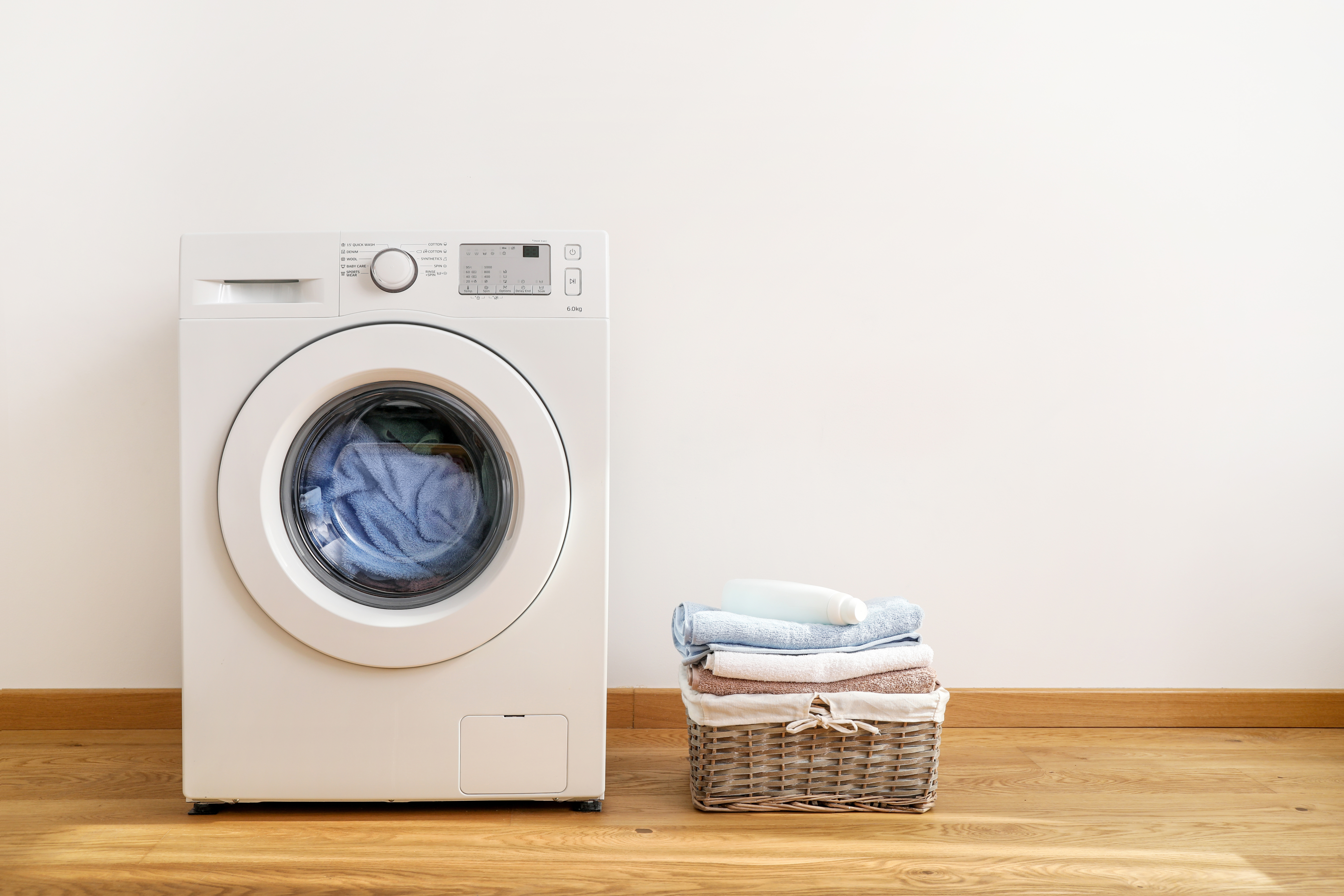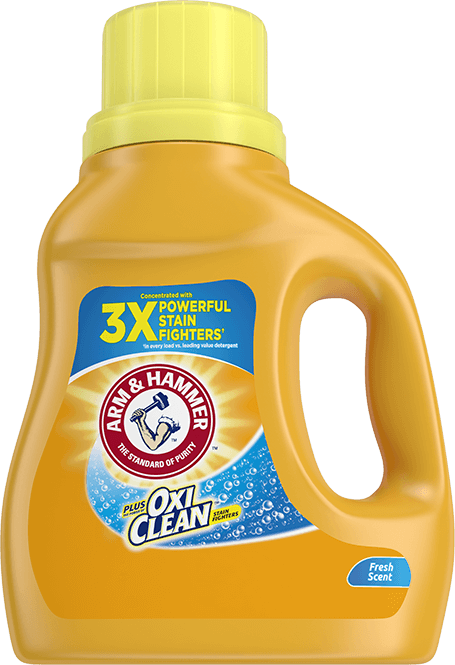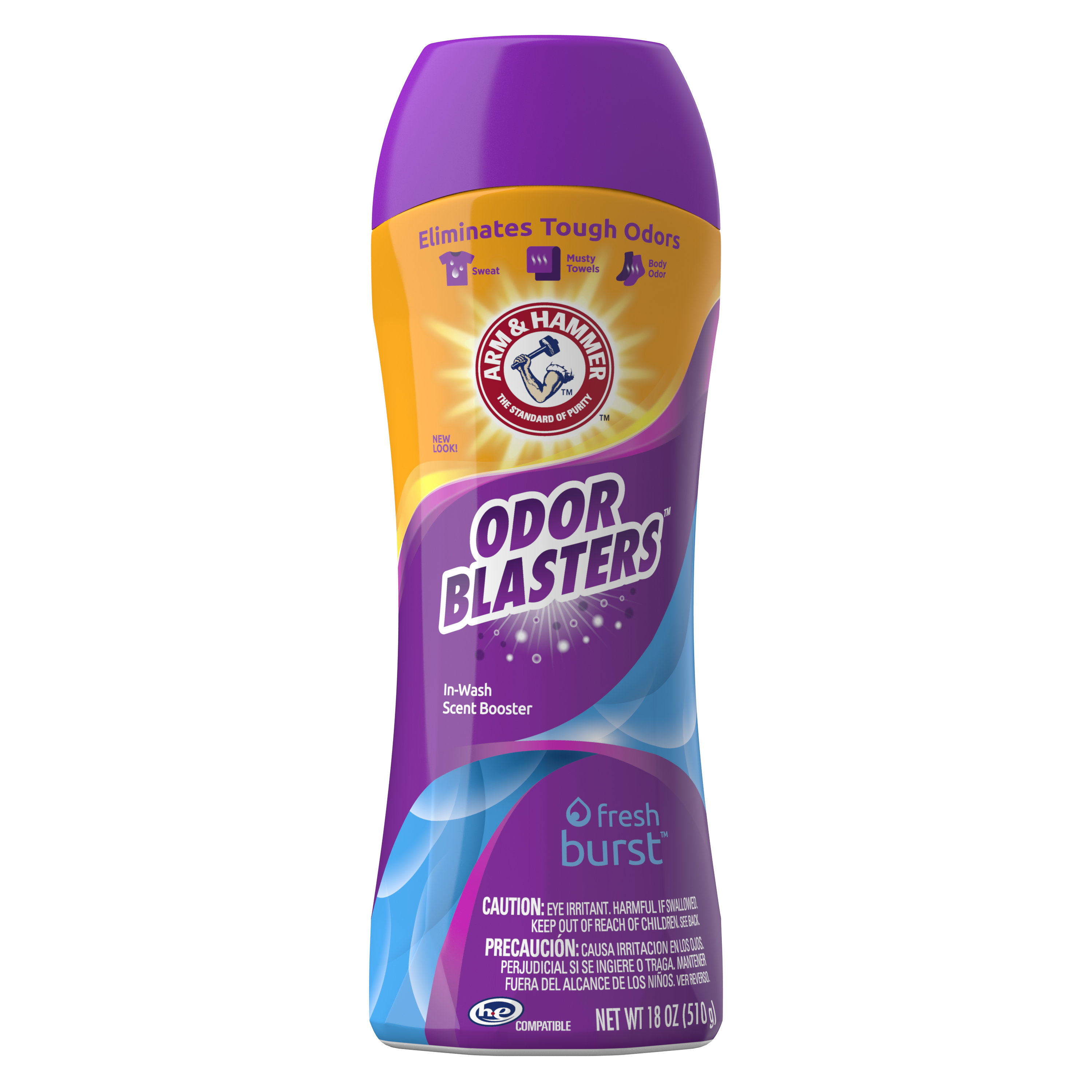Choosing the Right Laundry Water Temperature
Although you should always read the care label on any item you’re about to wash and follow those instructions, any fabric can be washed in cold water. While you should never wash an item in a temperature that is higher than recommended on the care label, it’s fine to go lower – with some caveats.
Some powder laundry detergents aren’t as effective in colder water temperatures, so choose a liquid detergent when washing on cold.
Why Wash Clothes in Cold Water? Here are 6 Reasons
Washing clothes in cold water reduces energy use and gets your clothes clean. Here are 6 reasons why switching to washing in cold water for most loads is a good idea.
1. Washing in Cold Water Saves Energy
According to Energy Star , 90% of the energy used to operate a washing machine is spent on heating the water. Energy Star estimates that switching from hot to warm water cuts energy use in half and switching to cold reduces energy use even more.
Using less energy is good for the planet and can help reduce your electric bills.
2. Cold Water Washing Helps Clothes Last longer

Laundering your clothes gets them clean but also breaks down the clothing fibers. Hot water is more damaging to clothing fibers, leading to them wearing out faster and shedding more microfiber particles. Washing in cold helps protect your fabrics to keep them looker newer longer. Extending the life of clothing can also help reduce the amount of textiles being added to landfills.
3. Cold Water is Better for Laundering Delicate Fabrics
Hot water can ruin delicate fabrics like rayon, rayon blends, wool, or silk by shrinking or breaking the fibers. Opting for cold water is safer for these fabrics and delicate items such as bras, underwear, bathing suits, and athletic wear.
4. Washing in Cold Water Can Help Reduce Fading & Color Bleeding
Hot water is more damaging to fabric fibers. Washing dark-colored fabric in cold water can help keep rich, deep colors looking their best. For added fade protection, use a detergent made to help protect clothes from fading, such as ARM & HAMMER™ Plus OxiClean™ Fade Defense.
If you have an item with both white and dark colors (like stripes or polka dots or another pattern), use cold water to help keep the dark color from bleeding onto white areas or other items in the load.
5. Using Cold Water for Laundry Reduces Microfiber Shedding
Whenever you wash clothes, tiny particles break away from the fibers, although some fabrics (such as fleece) “shed” more than others. Some of these loose fibers stick to your clothes in the form of “pills” or tiny balls. However, most of these microfibers are washed away in the rinse water, where they enter our waterways and oceans.
Microfibers from synthetic fabrics are actually microscopic pieces of plastic that are too small to be filtered out in water treatment plants. The EPA estimates that the US and Canada released some 878 tons of microfibers in 2019 into the ecosystem, which end up in our lakes, oceans, and waterways where they cause issues with wildlife and water quality and are extremely difficult to clean up.
Washing in cold water helps reduce fabric shedding and decreases the amount of microfibers that enter our ecosystem from laundry. You can also wash clothes on a shorter cycle and wash less often to help combat microfiber pollution.
6. Washing in Cold Helps Prevent Wrinkles
Choosing to wash in cooler water temperatures can help reduce wrinkling in your clothes. Cold water is less damaging to most fabric fibers than hot water, especially wrinkle-prone fabric such as cotton and linen. Follow the manufacturer’s care label for water temperature and never wash in water that’s hotter than recommended.
Another tip to help prevent wrinkling in your clothes: don’t overload the washing machine and remove items promptly from both the washer and the dryer.
Does Cold Water Shrink Clothes?
Cold water helps reduce the risk of shrinking clothes. Fabric fibers shrink as a result of being exposed to heat, either in the washer or the dryer. Use cold water temperatures in your washing machine and don’t use high heat drying cycles if you’re trying to reduce shrinkage.
Is Hot or Cold Water Best for Stains ?

Many food or beverage stains, such as chocolate, jam, baby food, beer, and dairy are more easily removed with cold water soaks and washes. Cold water is also recommended for urine and blood stains.
Other stains, especially oily or greasy ones, do better in warm or hot water. Grass and tomato-based stains also are easier to remove in warmer water temperatures.
Learn more about when hot or cold water is best with our stain removal guide.
4 Cases When Washing in Cold Water Isn’t the Right Choice
While washing in cold water is a great option for most of your laundry, there are four instances when you want to use warm or even hot water to wash your clothes. If you’re dealing with any of these, skip cold water and use the hottest water temperature allowed by the item’s care label.
- When someone is sick. If you’re washing items after you or someone in your household has been sick, try to opt for warm/hot water or use your washer’s sanitizing cycle, as long as the care label on the items states it’s ok.
- When it’s winter in a cold climate. If you live in a colder climate, water coming out of your tap can be less than 40 degrees Fahrenheit. That’s too cold for most laundry detergents to be effective, so to get your clothes clean, it’s better to bump up to warm water for optimal efficiency.
- If you have heavily soiled clothes. If you’re dealing with clothes that are very dirty or stained, such as cloth diapers, you’ll want to obtain maximum performance from your detergent by using warm or hot water. Wash heavily soiled items in the hottest water allowed on the care label. Luckily, most of your loads won’t be this dirty, so you won’t need hot water too often.
- Washing towels and sheets. Because these items absorb a lot of sweat and dirt, it’s best to wash them in warmer temperatures to help get them as clean as possible.
If you’re regularly washing with cold, you don’t have to feel guilty about washing in warm or hot when needed. Since these occasions will be fewer and farther between than your average laundry loads, you’ll still end up reaping all the benefits of washing in cold most of the time.
Laundry Detergents That Work Well in Cold Water Temperatures
As mentioned above, not all laundry detergents are designed to work well in cold water washes. Powdered detergents dissolve better in warmer water, so choose a liquid detergent to washin cold and get your clothes clean. Try one of these ARM & HAMMER™ liquid laundry detergents with stain- and odor-fighters that work in cold water :
- ARM & HAMMER Plus OxiClean Fresh Scent : with the added power of oxygen to fight stains.
- ARM & HAMMER Plus OxiClean Odor Blasters Fresh Scent : fight stains and neutralize odors with this formula.
- ARM & HAMMER Plus OxiClean Fade Defense : help protect the deep rich colors of your dark items from fading.
- ARM & HAMMER Clean & Simple : with 6 plant-based ingredients for a gentle formula that’s tough on stains.
- ARM & HAMMER Clean Burst : concentrated with 2x the stain fighting power and less water than ever before.
- ARM & HAMMER Sensitive Skin Free & Clear : dermatologist tested and hypoallergenic detergent for sensitive skin that cleans clothes without perfume, preservatives or dyes.




